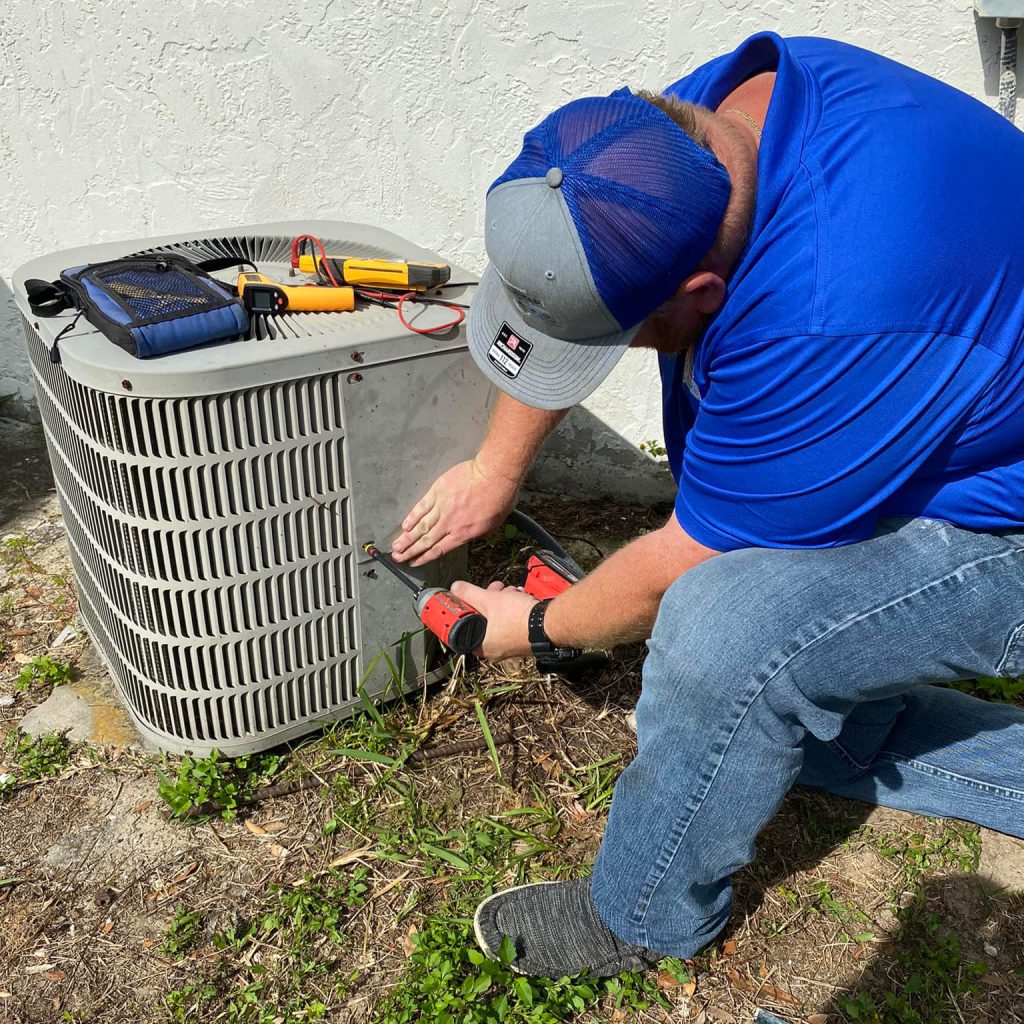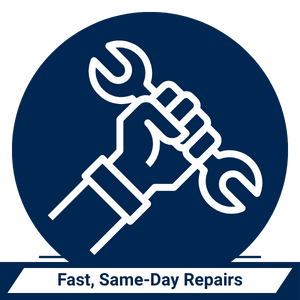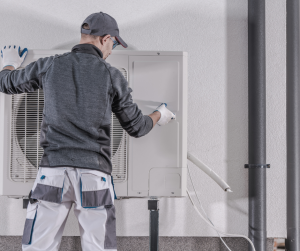Suppose your air conditioner has stopped cooling your home efficiently. In that case, you might be facing a significant decision: should you replace the AC compressor, or is it better to invest in an entirely new air conditioning system? This choice can feel daunting, especially given the AC compressor’s costs and role in your heating and cooling system.
If you’re unsure whether to replace the compressor or have your AC completely replaced, contact Iron Shield Heating and Air for expert advice. Our HVAC professionals can assess your system and guide you through the best options to cool your home efficiently and affordably. Let us assist you in making the optimal choice for your finances and home’s comfort.
Let’s dive into the key factors that will help you decide whether to replace the compressor on an AC unit.
Understanding the Role of the AC Compressor
The compressor is essentially the heart of your air conditioning system. It circulates the refrigerant that cools your home by transferring heat from the indoor air to the outdoor unit. When the compressor fails, your air conditioning unit can’t cool your home effectively. Whether your compressor has completely broken down or is showing signs of failure, you need to determine if it’s worth replacing the compressor or if a complete system replacement is a better option.
Signs Your AC Compressor May Be Failing
If you’re wondering whether to replace the compressor or buy a new system, it’s crucial to understand the signs of compressor failure. Here are some telltale signs that your AC compressor may need replacing:
- Lack of cool air: If your AC unit is running but not cooling your home, your compressor could be the reason.
- Strange noises: A failing compressor often makes rattling, clunking, or grinding sounds.
- Frequent tripping of the circuit breaker: If your breaker often trips when the AC system is running, it could indicate an issue with the compressor.
- Leaks or reduced airflow: Leaking refrigerant or inconsistent airflow may point to compressor problems.
Should You Replace the Compressor or the Entire Air Conditioner Unit?
When your AC compressor fails, you must decide whether to replace the compressor or the AC unit. Several factors influence this choice.
Consider the Age of Your AC Unit
If your AC unit is over 10-15 years old, it might be better to replace the whole system rather than just the compressor. Older units tend to be less energy-efficient, and the cost of replacing an older compressor may not provide much long-term value.
Assess the Cost of Compressor Replacement vs. Full Replacement
The cost of replacing a compressor depends on the size and type of your unit. In some cases, replacing the compressor alone might be half the cost of a new system. If other components of your AC system, like the air handler or evaporator coil, also show signs of wear, a total system replacement might be more cost-effective in the long run.
Evaluate Energy Efficiency and Long-Term Savings
A newer AC unit will likely be much more energy-efficient than your current model, especially if it’s over 10 years old. Replacing the entire system can significantly reduce energy bills, making it a better investment. If energy efficiency and lower utility costs are priorities, a new system might be the best option.
When Compressor Replacement May Be the Best Choice
In some cases, it’s worth replacing just the AC compressor, particularly if:
- Your AC unit is relatively new (less than 10 years old).
- The rest of your AC system is in good working order.
- A one-time issue, such as a power surge or lack of proper maintenance, caused the compressor failure.
- You want to avoid the higher upfront cost of a new AC unit.
If your system is still under warranty, you may be able to get the compressor replaced at little or no cost.
When to Replace the Entire AC System
However, replacing the entire system is likely more cost-effective if your AC unit is older, has had multiple repairs, or is inefficient. A new AC unit will offer modern features, increased energy efficiency, and warranties that provide peace of mind for years.
Factors Influencing AC Compressor Replacement Costs
Several factors determine the cost of replacing an AC compressor, including the unit’s warranty, size, type, brand, refrigerant requirements, and even the season when the replacement occurs. More efficient units typically cost more upfront but save on long-term energy bills. Here’s what you need to consider:
Warranty Impact on AC Compressor Replacement
The status of your AC unit’s warranty significantly affects replacement costs. Most warranties range from five years to a lifetime, and while they may cover the compressor, they often exclude labor costs for units over two years old, which can add to your expenses. It’s essential to read the terms carefully, as poor maintenance could void the warranty. Understanding your warranty details helps you effectively plan and budget for replacement costs.
Compressor Size and Replacement Costs
The size of the AC compressor is another critical factor in determining costs. Larger compressors, such as those in a 4-ton unit, cost more to replace than smaller ones, like those in a 1.5-ton unit. You must match the compressor size with your unit’s specifications for proper functioning. The cooling capacity is often indicated by the model number of your AC unit, which shows the British Thermal Unit (BTU) rating. For instance, a model number ending in 36 signifies 36,000 BTU (or 3 tons). A higher BTU rating means higher cooling capacity and a more expensive replacement.
Types of AC Compressors
The type of compressor you choose has a direct impact on both upfront and long-term costs:
- Single-stage compressors are more affordable but less energy-efficient as they run at total capacity all the time, leading to higher energy bills.
- Two-stage compressors offer a middle ground. They run at different speeds to improve efficiency while maintaining a consistent indoor temperature.
- Variable-speed compressors are the most efficient and have the highest price tag. These units adjust their speed based on cooling needs, providing superior energy savings over time.
Brand Matters
The brand of the AC unit plays a role in determining replacement costs. Premium brands tend to have higher-priced compressors, and replacing the compressor with the same brand can help maintain your system’s performance. However, some systems can work with a different or generic compressor brand, potentially lowering costs.
Refrigerant Considerations for Compressor Replacements
After replacing the AC compressor, you must refill the system with refrigerant. Systems typically require two to four pounds of refrigerant. If your system uses Freon (now phased out), expect higher costs, as newer refrigerants like R410A are more affordable and eco-friendly. Using the correct refrigerant for your system is essential to ensure maximum efficiency and avoid potential damage.
How the Season Affects Replacement Costs
The timing of your AC compressor replacement can influence the overall cost. During peak HVAC service seasons like summer or winter, replacement costs can rise due to high demand. For better rates, consider scheduling your replacement during off-peak periods, such as early spring or fall, when contractors are less busy and may offer discounted services.
Get Expert Help for Your AC Compressor Replacement Today!
Is replacing the compressor on your AC unit the best choice for your situation? Our highly skilled team at Iron Shield Heating & Air offers expert guidance through your decision-making process. We operate 24/7, providing personalized HVAC solutions to maintain the efficiency of your air conditioning system and ensure a comfortable environment.
With hundreds of five-star reviews, Iron Shield Heating & Air has earned its reputation as the go-to company for AC repairs in Ocala, FL. Contact us for dependable AC compressor replacement or expert advice on whether investing in a new air conditioning unit is worth it. Our team is committed to delivering high-quality service for your heating and cooling needs.











